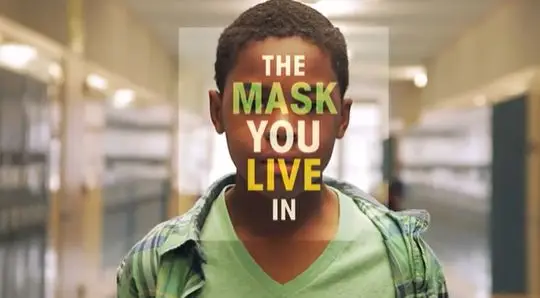Our office manager, Ashley, recently watched a documentary (available on Netflix) called “The Mask You Live In.” The documentary "follows boys and young men as they struggle to stay true to themselves while negotiating America’s narrow definition of masculinity."
Below are Ashley's thoughts about how the documentary affected her as a parent to a six-year-old boy.
Tell us about the documentary.
My significant other and I recently watched “The Mask You Live In.” I learned about it from one of my colleague’s presentations on gender, and I was intrigued. We have a six-year-old son, so a lot of the messaging certainly resonated for us.
Here’s the trailer I first watched that caught my attention.

What stood out to you?
What really caught my attention were some of the alarming statistics in the film, such as the high suicide rate for boys. It talked about how most mass shootings are done by males. I think the most interesting part for me was the link between how we treat boys as a society, and how some men turn out. We judge this behavior, but really, we set them up by assigning such strict gender roles.
One part of the movie focused on boys feeling as though they are not allowed to express their emotions. Even watching the documentary, there were parts that made me tear up. When my significant other and I talked about it afterwards, he said that he also felt sad, but did not express that because he just does not feel like he is allowed to cry, by society’s standards. I really cannot imagine what that would feel like or how hard that would be to feel as though I have to hold in my emotions all the time.
How did this make you think about your role as a mother of a young boy?
In many ways, we were already doing some of the things on our own, like allowing him to express his emotions and not assigning strict roles related to gender. But, the documentary did put it in the front of our minds again and helped us think about it in a new way.
When my son feels sad, we let him know that it is okay to be sad and to let his emotions out and or talk about it. We never tell him to stop crying or ask him to hold in his emotions. The film really helped me realize that it is crucial to encourage his ability to work through his feelings, so we encourage him to let it out, rather than hold it in. We would like for him to manage his feelings in a way that is regulated, productive and positive.
Another thing we think about is the role that gender plays in our expectations of our son. Just because he is a boy does not mean he has to like or play sports. He is actually not really that into sports. He prefers art. Starting from birth, people start to assign things based on gender roles, like princesses and super heroes. My son carried around a baby doll when he was a toddler. Why are baby dolls supposed to be only for girls?
What do you ultimately hope for your son?
Most of all, I want to let him be him. I want him to be free to be whoever he is and not have to wear a “mask” or have to show the world a different version of himself.
I want him to be strong. I don’t think strong is masculine. I see myself as very strong. I would also like him to be sensitive, kind and compassionate. I would like him to be able to express himself in the way that he needs to in order to be effective. If he is upset, I want him to be able to articulate that without acting like a fool. If he loves and cares about someone, I want him to be able to show that. We work so hard to instill these values in our son, and my biggest hope is that society does not screw it up and undo the work we are doing at home. That’s the scary part about having kids – you do what you can and you send them into the world. Watching the documentary definitely made me realize what the world really looks like for boys and men, so I hope the work we do at home is enough to change that story for my son.
I believe that being in touch with your feelings helps you communicate, and communication rules the world. Look at what happens in relationships, workplaces, politics, etc. when people communicate well and respect each other. And look what happens when ego takes over. My goal is that my son, and all boys, can learn to understand their own feelings and communicate them effectively.
Share with
Related Resources